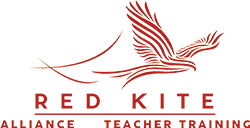Enabling students to experience and enjoy a wide range of literature is central to the Key Stage Three and Four English curriculum at Nidderdale. Students will be taught by teachers who are passionate about reading and writing, and will learn about a range of literary genres and time periods. Our overriding ambition in English is to use literature to take students beyond their own experience of the world so that their experiences in English can influence their own decisions in life beyond the classroom.
The curriculum in Key Stage Three is broad, flexible and adaptable. We read texts that allow students to consider a range of themes that are relevant to their everyday experience of the world, and we build up their understanding and knowledge surrounding these key themes ready for when they are encountered again in Key Stage Four. The texts studied will change according to student need and relevance to life in our modern world. The development of Speaking and Listening in a range of contexts is central to all areas of the curriculum at Nidderdale, and knowledge of how to present information, voice a clear opinion and use role play to explore feelings are explicitly taught in English in all year groups.
The exploration of ideas about gender, family relationships, and difference and acceptance are central to our Year 7 English Curriculum, and students will experience Shakespeare, 21st Century authors, and poetry. Alongside this, students will get to write in role as authors, magazine journalists and travel journalists. At the end of Year 7 students will know about the world in which Shakespeare was writing and family relationships within this context and be able to explain the plot of one complete Shakespeare play. They should know about how stereotypes surrounding men and women have been shaped from the roles men and women have had in society from the 1500s to the present day, having explored these in their Shakespeare text and a range of poetry. Students will know and be able to explain features of the gothic genre, travel writing and the conventions of a magazine.
In Year 8, students will explore ideas about power, social-class and societies across time while experiencing poetry, drama, and Victorian short stories. They will write as detective authors, newspaper columnists and poets. By the end of Year 8 students will know the conventions of the detective genre and the main features of newspaper columns. Students will know facts about the Victorian period and how these influenced key writers during this time.
In Year 9 students will explore ideas about identity, war, romantic and family love while experiencing modern novellas, a range of poetry from 1900 to the present day related to conflict, Shakespeare’s romantic plays, and be able to demonstrate their use of rhetoric by writing speeches. They will be able to produce a critical analysis of various texts. By the end of Year 9, students will know more about how marriage and love was perceived in the Elizabethan world, having previously encountered this in Year 7. They will also have a more in depth knowledge of the pressures facing men at this time involving concepts such as “male pride” “honour” and “manliness”. They will know about how these same pressures were used during recruitment in the First and Second World War having studied a range of poems from this period.
English at Nidderdale goes beyond the school curriculum as students are given the opportunity to develop their experience of the themes introduced within the classroom. This can be in the form of organised trips for students to theatres, historical sites or universities. This will also be seen through excellent student teacher relationships and the recommendation of books, plays or films based on literature.
At Key Stage Four students follow the AQA specification for Language and Literature. We choose texts, short stories and non-fiction articles that allow students to continue to explore ideas about gender, family, power, social class, travel, identity and romantic relationships as they prepare to showcase their knowledge and understanding through their examinations.
Click on the links below to see more detail about the English curriculum:

